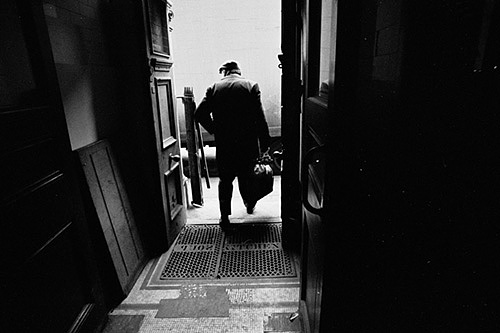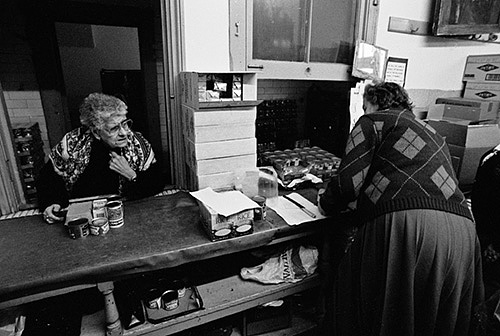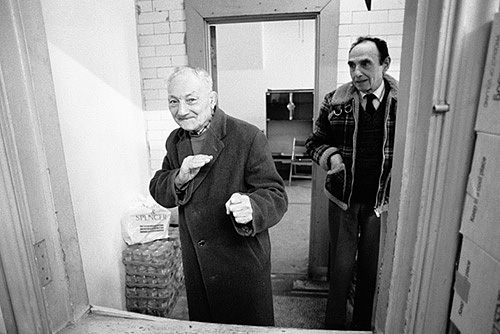Helena Smith in today’s Guardian reports from Greece on the “unravelling social fabric” of that country. The draconian austerity imposed by the European Union has made beggars of many Greeks and according to a UNICEF report earlier this year, nearly 600,000 children live under the poverty line – more than half that number lack basic daily nutritional needs.
I wrote last summer (here and here) about the crisis interviewing academics, NGO’s and those queuing for meagre hand-outs recently impoverished by the cuts. I focused on community action and how people were feeding each other from their gardens – survival strategies against the onslaught of NeoLiberal bankers set on profit and punishment. Here was the shock in action, the management and manipulation of crisis, the confiscatory deflation (see Chile, Argentina, Mexico etc, etc); the revenge of the elites; here was the project to destroy social cohesion (because there is no such thing as Society).
Here’s a picture of that idea failing.
–

My last paragraph tried to sketch the scene outside the Municipal Soup kitchen in a way that photography couldn’t.
–
“In the afternoon, the municipal soup kitchen has a slightly carnival atmosphere. Africans, Kurds, Arabs and Bangladeshis all congregate in their little groups talking animatedly about their troubles. Who knows their tortuous routes to Europe, but they are being fed. There is a blur of grubby children running this way and that. Women in headscarves picnic on the grass with chunks of Greek bread. Men of all shades discuss politics and perhaps wonder about the families that they have left in yet more difficult, dusty places.
Natassa has returned with her husband to help carry more potatoes home in a shopping basket on wheels. He is tired and a little resigned, never imagining that his dotage would be like this. “We are good people” he says. The lowing sun casts long, sharp shadows that cut the ground into the jagged shapes of the railings around the building. Arm in arm. Two old people as if on promenade. Then she turns and her face lights with something that is between pride and humour.
“I may be a beggar” she says, “but I am still a lady”
She is, for that moment, all of Greece.
–
©Stuart Freedman 2012



